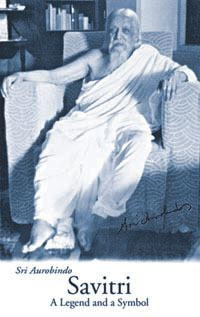The Power of Concentration In the Yoga of Knowledge :
In his lectures on Raja Yoga, Swami Vivekananda provides an extended description of the Yoga Sutras of Patanjali and their meaning. To a great extent, this text is a primer on the power of concentration and its application for the practitioner of Yoga. Raja Yoga can be seen as the art and science of concentration. One of the powers described by Swami Vivekananda is “samyama’, essentially a total, absorbed concentration on any object which results in the complete knowing by identity of whatever was the focus of the concentration. In the Taittiriya Upanishad, the disciple is urged to undertake “concentration in thought”, as translated by Sri Aurobindo, because “concentration in thought is the Eternal.” The power of concentration is central to any practice of the Yoga of Knowledge.
Sri Aurobindo provides a description of three powers of concentration in achieving the spiritual aim: “By concentration on anything whatsoever we are able to know that thing, to make it deliver up its concealed secrets; we must use this power to know not things, but the one Thing-in-itself. By concentration again the whole will can be gathered up fro the acquisition of that which is still ungrasped, still beyond us; this power, if it is sufficiently trained, sufficiently single-minded, sufficiently sincere, sure of itself, faithful to itself alone, absolute in faith, we can use for the acquisition of any object whatsoever; but we ought to use it not for the acquisition of the many objects which the world offers to us, but to grasp spiritually that one object worthy of pursuit which is also the one subject worthy of knowledge. By concentration of our whole being on one status of itself, we can become whatever we choose; we can become, for instance, even if we were before a mass of weaknesses and fear, a mass instead of strength and courage, or we can become all a great purity, holiness and peace or a single universal soul of Love; but we ought, it is said, to use this power to become not even these things, high as they may be in comparison with what we now are, but rather to become that which is above all things and free from all action and attributes, the pure and absolute Being.” These three powers, when applied to the highest aim set forth for the Yoga of knowledge, become the way, the path and the method of the Yogic process.
Understanding and wielding the power of concentration, however, is important not just for the practice of the traditional Yoga of knowledge, but has its benefits for the integral Yoga as well, when one recognizes that the aim of the Yoga of knowledge, essentially a renunciation of the world, does not entirely agree with the premise of the integral Yoga which seeks to unify the inner and the outer, the spiritual and the material, the One and the many, and transform all life, not through renunciation of that life, but through spiritual action, into a pure expression of the Divine Being in manifestation.
Sri Aurobindo





Comments
Post a Comment